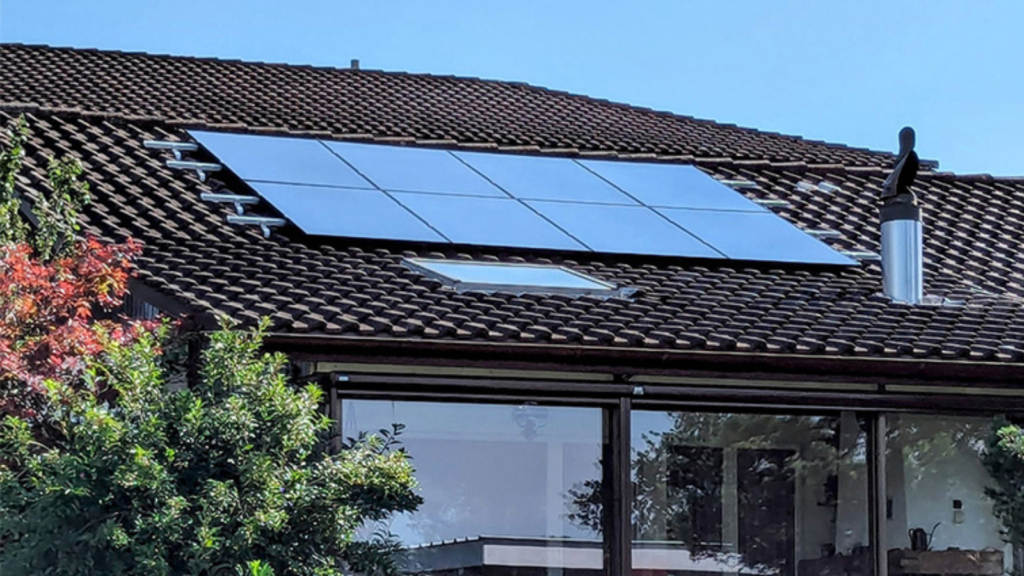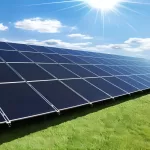As global energy prices rise, more households are seeking alternative energy sources, with solar power emerging as a top choice. Solar energy is not only a sustainable and eco-friendly option but also significantly reduces electricity costs. However, many consumers often find themselves confused about how many solar panels are needed to meet their household energy demands. This article explores how to determine the scale and requirements of a home solar power system.
Key Factors in Determining the Number of Solar Panels
Calculating the number of solar panels required for a home is an important step that involves several considerations:
- Understanding Household Energy Consumption
First, you need to determine your monthly electricity usage (in kWh), which forms the basis for calculating the number of solar panels needed. Typically, the average household consumes between 300 and 1,000 kWh per month. If you have an electric vehicle or other high-consumption devices, your usage may be higher. - Power Rating of Solar Panels
The power rating of solar panels usually ranges from 250W to 450W, with higher-rated panels offering better efficiency. Increased efficiency means fewer panels will be required to meet energy needs. Selecting the appropriate power rating will help fulfill your household’s electricity requirements. - Solar Irradiance Conditions
The electricity generation capacity of solar panels depends on the sunlight conditions in your area. Generally, regions with ample sunshine can harness solar energy more effectively. In areas with more sunny days throughout the year, panel efficiency will be higher. Conversely, in cloudier and rainier regions, efficiency may decrease. Thus, you need to estimate the number of panels required based on the sunlight hours in your location. - Rooftop Space and Orientation
Ensure that your roof has sufficient space to install the solar panels. Typically, each standard solar panel occupies about 1.6 square meters. Therefore, installing 20 solar panels requires at least 32 square meters of rooftop area. Additionally, panels should ideally face south or be positioned at an optimal angle to maximize solar absorption. If the roof orientation is not ideal, you may need to increase the number of panels to compensate for reduced efficiency.

Calculation Method
Assuming your household consumes 900 kWh per month, with an average sunlight duration of 4 hours per day and each solar panel rated at 350W:
- Daily Energy Consumption: 900 kWh ÷ 30 days ≈ 30 kWh/day
- Hourly Power Demand: 30 kWh ÷ 4 hours ≈ 7.5 kW
- Power Output per Panel: 350W = 0.35 kW
- Required Number of Panels: 7.5 kW ÷ 0.35 kW ≈ 22 panels
Based on these calculations, your household would need approximately 22 solar panels to meet daily energy requirements.

Considering Losses and System Efficiency
The actual efficiency of a solar power system can be impacted by various factors, including losses incurred by inverters and cables. Typically, system efficiency ranges from 80% to 90%. Therefore, it is advisable to add an additional 10% to 20% to the calculated number of panels to ensure stable power supply.
Long-Term Benefits and Future Energy Needs
Solar panels generally have a lifespan of over 25 years. If you plan to add more electrical devices in the future (such as an electric vehicle charging station), it is wise to install a few extra panels initially. Any surplus electricity can also be fed back into the grid through a net metering system, providing additional revenue.
Conclusion
Determining the number of solar panels you need requires a comprehensive consideration of energy consumption, panel power rating, sunlight conditions, roof space, and future needs. Choosing the right configuration will enable you to achieve energy self-sufficiency, save on electricity bills, and potentially earn extra income in the future, making it an excellent choice for a sustainable and environmentally friendly lifestyle.
Since 2008, Maysun Solar has been dedicated to producing high-quality photovoltaic modules. Our range of solar panels, including IBC, HJT, TOPCon panels, and balcony solar stations, are manufactured using advanced technology and offer excellent performance and guaranteed quality. Maysun Solar has successfully established offices and warehouses in many countries and built long-term partnerships with top installers! For the latest quotes on solar panels or any photovoltaic-related inquiries, please contact us. We are committed to serving you, and our products provide reliable assurance.

Empowering Factories with Solar Energy A Strategic Tool for Controlling Production Electricity Costs
Commercial and industrial solar is becoming a key solution for factories to reduce electricity costs and hedge against price fluctuations. This article systematically analyzes its deployment models, cost advantages, and sustainable value pathways.

How Businesses Can Offset Carbon Taxes with Solar Power
This article analyzes the latest carbon tax policies and photovoltaic deduction strategies, helping European businesses legally reduce taxes, increase profits through solar investment, and achieve a win-win situation for both economy and environment.

Forecast and Response: Seizing the Next Decade’s Growth Dividend in Europe’s Commercial and Industrial Photovoltaics Market
Maysun Solar analyzes the growth trends of commercial and industrial photovoltaics in Europe over the next ten years, from policies and ESG to technological innovation, helping companies seize the initiative in the energy transition.

How to Calculate Solar System ROI and Optimize Long-Term Returns?
Solar power is becoming a key solution for businesses to reduce costs and improve efficiency. Accurately calculating ROI and optimizing long-term returns are essential to maximizing investment value.

Will Agrivoltaics Affect Crop Growth?
Agrivoltaics combines solar energy and agriculture to reduce up to 700 tons of CO₂ per MW, improve water use, and boost crop growth for sustainable farming.

6.5 Billion Loss Hits Photovoltaics: Reshaping or Elimination?
In 2025, the photovoltaic market may see a turnaround as some companies take early action. A €6.5 billion loss is driving businesses to explore new growth areas like energy storage and hydrogen. Which giants will break through? Industry transformation is accelerating!



